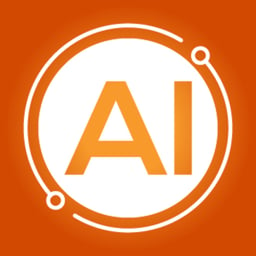
Welcome to today's edition of AI Business Weekly. From Amazon's elimination of 14,000 corporate roles to fuel AI investments, to Chegg's devastating 45% workforce reduction in response to AI disruption, the cost of the AI revolution is becoming starkly quantifiable. Meanwhile, Mercor reaches a staggering $10 billion valuation by training the very AI models that may displace workers, and Microsoft finalizes its restructured relationship with OpenAI with a 27% stake worth $135 billion. As Israeli startup Onfire AI raises $20 million to bring military-grade intelligence to sales, the message is unmistakable—AI's transformation of work is accelerating, and no sector is immune. Let's dive in.
Amazon Cuts 14,000 Corporate Jobs to Focus on AI
Amazon is eliminating approximately 14,000 corporate positions, representing a 4% reduction of its corporate workforce, as the tech giant redirects resources toward artificial intelligence investments. The announcement came after reports of massive job cuts began circulating Monday, confirming one of the company's most significant workforce reductions in recent memory. Teams and individuals impacted by the layoffs were notified on Tuesday, with most workers receiving 90 days to search for new positions internally, according to Beth Galetti, Senior Vice President of People Experience and Technology at Amazon. The move underscores how even the world's largest companies are reshaping their workforce structures to prioritize AI capabilities. Read more

The AI Startup Fueling ChatGPT's Expertise Is Now Valued at $10 Billion
Mercor, a startup that has become a critical infrastructure player in improving top AI models, has finalized a new funding deal valuing the company at $10 billion—five times its February valuation. The dramatic increase reflects Mercor's pivot to one of the most lucrative sectors in the AI boom: hiring thousands of white-collar professionals to train the very machines that could eventually replace or augment their work. The company has positioned itself as an essential component in the ecosystem that powers ChatGPT and other leading AI models, creating an ironic economy where human expertise is commoditized to build its own potential replacement. Mercor's valuation surge demonstrates the massive capital flowing into AI infrastructure and training operations. Read more

Chief Technology Officer Adarsh Hiremath, left, and Chief Executive Brendan Foody dropped out of college to start Mercor. Bonnie Rae Mills
Microsoft and OpenAI Agree to New For-Profit Deal; Windows Maker Gets 27% Stake
Microsoft and OpenAI announced Tuesday they have finalized terms for a new agreement that allows the ChatGPT developer to proceed with plans to transform into a for-profit public benefit corporation. Under the restructured arrangement, Microsoft will hold 27% of the OpenAI Group PBC valued at approximately $135 billion, while OpenAI's non-profit arm will retain a $130 billion stake in the for-profit entity. Significantly, Microsoft will no longer have the right of first refusal to serve as OpenAI's cloud provider, though OpenAI has contracted to purchase $250 billion worth of Azure services. The agreement represents a major evolution in one of the tech industry's most consequential partnerships and clarifies the financial relationship as OpenAI pursues broader commercialization. Read more

Chegg Cuts 45% of Staff as AI Reshapes Online Learning Business
Chegg Inc., the Santa Clara-based online learning platform, announced Monday it will eliminate approximately 45% of its workforce—roughly 388 employees—as the company grapples with what it describes as "the new realities of AI and reduced traffic from Google to content publishers." The dramatic reduction represents one of the most severe AI-driven workforce contractions in the education technology sector, as students increasingly turn to AI tools like ChatGPT for homework help and study assistance rather than traditional subscription services. Chegg's struggles illustrate how quickly AI is disrupting established digital business models, particularly those built on providing information and answers that generative AI can now deliver for free. The company's challenges signal broader vulnerability for content-based platforms facing AI competition. Read more

Onfire AI Raises $20 Million in Seed Funding to Bring Military Precision to SaaS Sales
Israeli startup Onfire AI has secured $20 million in Seed funding, led by TLV Partners and Grove Ventures, with participation from IN Venture and Leumi Tech 77. Founded by Unit 8200 veterans, the startup is adapting battlefield intelligence tools to identify real-time business demand and transform SaaS sales processes. The company leverages military-grade intelligence methodologies to help businesses detect buying signals and prioritize prospects with unprecedented precision. Onfire AI's approach reflects the growing trend of defense technology expertise being applied to commercial AI applications, particularly in sales and business intelligence. The substantial seed round underscores investor confidence in AI-powered sales tools as companies seek competitive advantages in increasingly saturated markets. Read more

📢 The Workforce Reckoning Accelerates
Today's edition reveals the full spectrum of AI's impact on employment: Amazon and Chegg collectively eliminating over 14,000 positions, Mercor reaching unicorn status by training AI on human expertise, and Microsoft cementing its OpenAI partnership with a $135 billion stake. As Onfire AI brings military intelligence to sales automation, the pattern is unmistakable—AI is simultaneously creating massive valuations for those building the technology while devastating workforces in its path. The question is no longer whether AI will reshape work, but how quickly and how dramatically the transformation will unfold.




